Thursday, 20 March, 2014 
Yesterday’s Budget confirmed HMRC’s plans to require users of a tax planning scheme to pay the disputed tax immediately, if the scheme resembles one that has already been defeated in court. This will affect taxpayers throughout Northern Ireland who have invested in aggressive tax planning schemes
Speaking in Newry today Kevin Neary agreed that the requirement will also apply to failed ‘follower’ schemes that fall under the Disclosure of Tax Avoidance Schemes (DOTAS) rules or have been disallowed under the general anti-abuse rule. In the case of a DOTAS scheme, the tax may have to be paid up front even if no-one outside of HMRC has ruled that anything is payable.
The power will be exercised via ‘accelerated payment notices’, issued by HMRC after it has sent the taxpayer an enquiry notice or a notice of assessment. The relevant legislation will be included in the Finance Bill 2014.
Bill 2014.
The new power is to be combined with additional ‘modernised’ debt collection powers for HMRC, which will be able to seize funds direct from the bank accounts of those it believes are behind with their tax payments. According to the Treasury, this power will only be used against debtors who owe over GBP1000, have the financial means to pay, and have been chased several times by HMRC. The Treasury says that some other countries, including France and the US, already have this ability.
powers for HMRC, which will be able to seize funds direct from the bank accounts of those it believes are behind with their tax payments. According to the Treasury, this power will only be used against debtors who owe over GBP1000, have the financial means to pay, and have been chased several times by HMRC. The Treasury says that some other countries, including France and the US, already have this ability.
‘We will now require those who have signed up to disclosed tax avoidance schemes to pay their taxes, like everyone else, up front,’ said Osborne in his Budget speech. Replying to criticisms that there is no avenue of appeal against a payment notice issued under the new powers, he noted that people who feel they have been wronged ‘can of course go to court’ and if they win can get their money back plus the minuscule amount of interest paid by HMRC.
back plus the minuscule amount of interest paid by HMRC.
‘We have already consulted on this idea – now we will implement it,’ he said, though without acknowledging that the vast majority of responses to the consultation were hostile to the proposal – especially its retrospective nature.
Law firm Withers called it a ‘dramatic and far-reaching change that could create significant cash flow issues for taxpayers, especially where the amount of tax initially assessed and the amount actually due at the end of a proper enquiry process are generally not the same thing’. The fact that the new power will apply to a number of open enquiries is likely to result in enquiries being settled hastily and often to the taxpayer’s disadvantage, even where there are real merits on the taxpayer’s side, it said.
flow issues for taxpayers, especially where the amount of tax initially assessed and the amount actually due at the end of a proper enquiry process are generally not the same thing’. The fact that the new power will apply to a number of open enquiries is likely to result in enquiries being settled hastily and often to the taxpayer’s disadvantage, even where there are real merits on the taxpayer’s side, it said.
‘It will be vital to ensure that there are adequate safeguards to ensure that such tax is only held in appropriate cases, and that taxpayers carrying out normal transactions are not unduly penalised,’ said Tina Riches, National Tax Partner at Smith & Williamson. She said HMRC’s new power to collect direct from a taxpayer’s bank account raised ‘huge concerns around whether their record of amounts owed were correct and also whether the person really could afford to pay the tax’.
account raised ‘huge concerns around whether their record of amounts owed were correct and also whether the person really could afford to pay the tax’.
Jason Collins of Pinsent Masons said that demanding payments on account of a potential tax liability was a step too far. He warned that the effect could be to send promoters offshore where they will not be subject to a penalty if they wrongly advise their customers not to disclose a scheme and thus avoid up-front payment.
too far. He warned that the effect could be to send promoters offshore where they will not be subject to a penalty if they wrongly advise their customers not to disclose a scheme and thus avoid up-front payment.
However, Ronnie Ludwig, of Saffery Champness described the new accelerated payment power as a ‘further bayonet into the dying corpse of aggressive and abusive tax avoidance schemes’. The fact that those entering into such schemes will have to pay tax in advance, on the assumption that the schemes will fail when challenged under the General Anti-Abuse Rule will further dissuade all but the most fervent individuals from investing in them, he said.
in them, he said.
The Office of Budget Responsibility estimates that the new powers will bring forward GBP4 billion of tax receipts. It will also reduce the incentive to engage in tax avoidance in the future. According to Osborne, the number of registered tax avoidance schemes has already fallen by half since the current government began its anti-avoidance campaign.
– See more at: http://www.step.org/advance-payments-be-enforced-failed-tax-planning?j=652271&e=kevin@dndlaw.com&l=346_HTML&u=15043308&mid=1062735&jb=0#sthash.FS3wEvVE.dpuf


